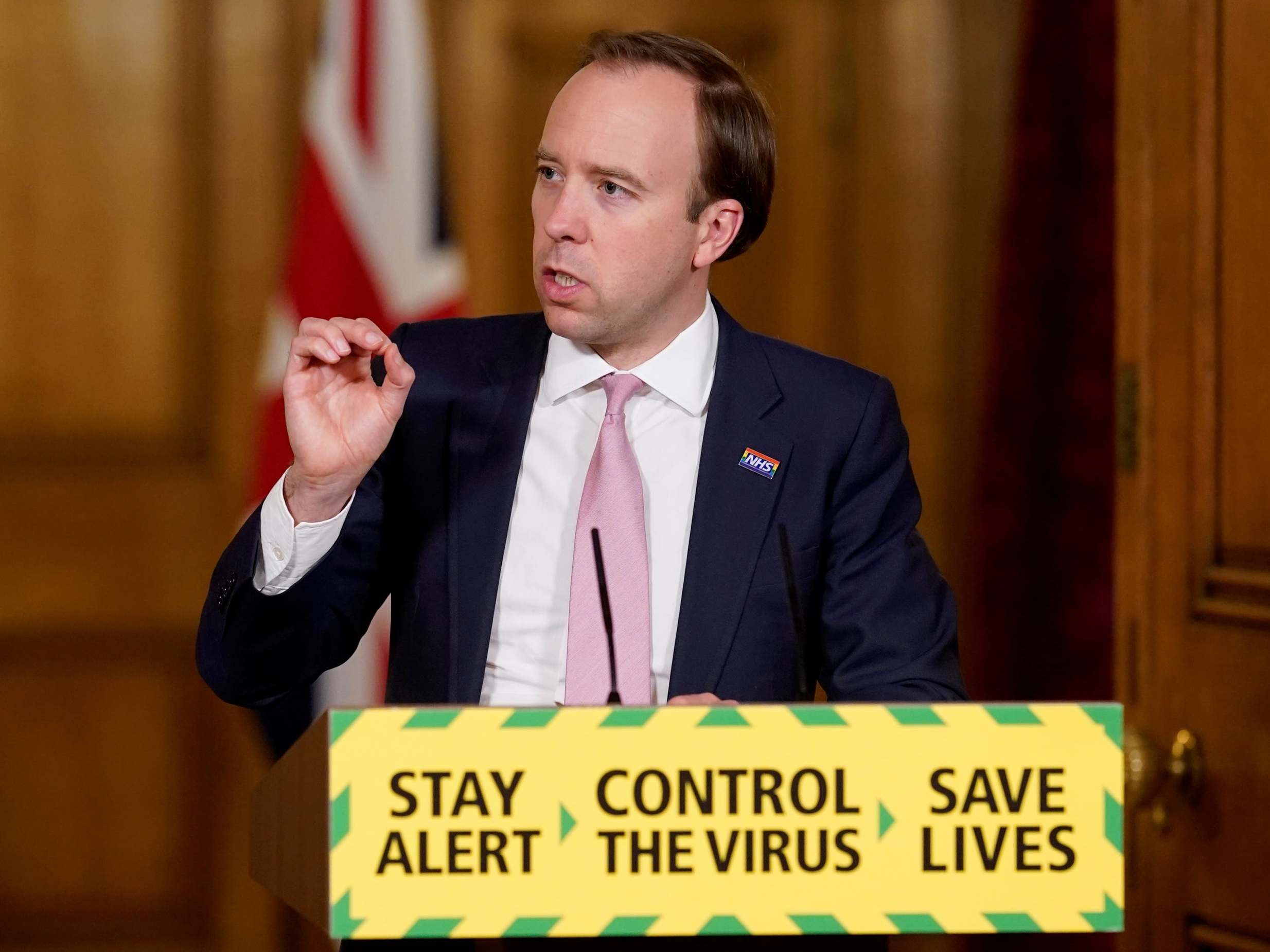Infection 'R' rate fell as low as 0.57 in lockdown, major study finds
Scientists reported that rates of infection halved every eight to nine days during May, placing the overall reproduction rate at 0.57 – which is lower than previously reported.

The largest study so far into the spread of coronavirus across England has found infection rates fell significantly in the month before lockdown restrictions were lifted.
Initial findings have been published from the study, 120,000 volunteers took part.
The Imperial College London research tracks the prevalence of the virus during May and will provide a baseline for continued studies into how the virus is spreading.
Scientists reported that rates of infection halved every eight to nine days during May, placing the overall reproduction rate at 0.57 – which is lower than previously reported. The report is yet to be peer-reviewed.
Health secretary Matt Hancock welcomed the findings, saying: “This ambitious testing programme will help us better understand the spread of the virus to date, predict how it may spread in the future and inform our response to the pandemic.
“It shows the impact our national lockdown efforts have had and demonstrates that we have taken the right actions at the right time.
“As a country we have made great strides towards beating this virus but we mustn’t take our foot off the pedal, and such studies will be vital as we continue to fight this virus.”
The report provides an insight into who was infected with the virus between 1 May and 1 June, comparing geography, age, sex, ethnicity, key worker status and symptoms.
It found that those aged 18 to 24, were more likely to test positive than other age groups, which the Department of Health and Social Care (DHSC) said “[reinforces] the need for this age group to adhere to social distancing measures to protect vulnerable friends and family”.
Asian participants were more likely to test positive than white participants, to which the DHSC said: “It is possible that higher infection rates have contributed towards the higher death rates observed in this ethnic group.”
Health and care home workers were the most likely to be infected with Covid-19 during lockdown, with care home staff found to be 7.7 times more likely to test positive than non-key workers.
The Real-time Assessment of Community Transmission (REACT-1) programme also found that anyone who had recent contact with a known Covid-19 case was 24 times more likely to test positive than those with no such contacts.
“The NHS Test and Trace service is therefore playing an integral role in stopping the virus from spreading further having already contacted 130,000 people at risk of unwittingly transmitting the virus and advising them to self-isolate,” a DHSC spokesperson said.
The latest Test and Trace figures show that in the programme’s first five weeks, nearly a quarter of those who tested positive were not reached, nor were a fifth of the close contacts provided – the latter of which amounted to 6,645 people.
Director of the programme at Imperial, Professor Paul Elliott, said: “Community testing is a vital step in ongoing efforts to mitigate the pandemic, but to be successful this must be based on robust scientific evidence and sound statistics.
“Through this surveillance programme with DHSC and Ipsos MORI we’re gathering the critical knowledge base necessary to underpin community testing and facilitate a greater understanding of the prevalence of Covid-19 in every corner of England.”
Managing director of Public Affairs at Ipsos MORI, Kelly Beaver, said: “At home community testing at this scale has not been delivered before across England”, adding that it has taken significant innovation, perseverance and skill to ensure it has been a success”.
“We want to thank all the study participants for their time, and contribution, it has been fantastic to be engaging with the public at this scale on an issue of such national importance,” Ms Beaver added.
The second part of the programme will aim to test 100,000 volunteers for antibodies to establish how many people may have already been infected.
Join our commenting forum
Join thought-provoking conversations, follow other Independent readers and see their replies
Comments
Bookmark popover
Removed from bookmarks